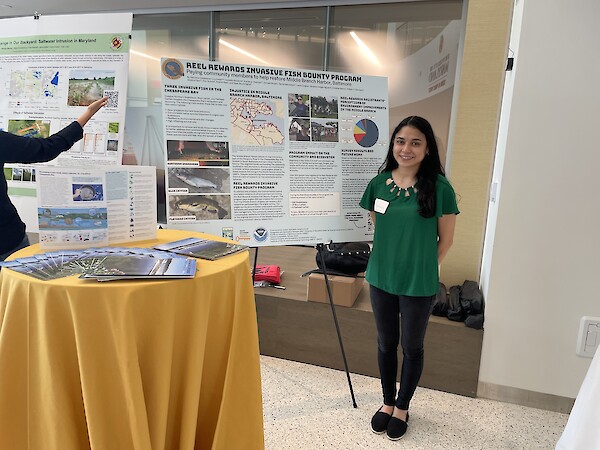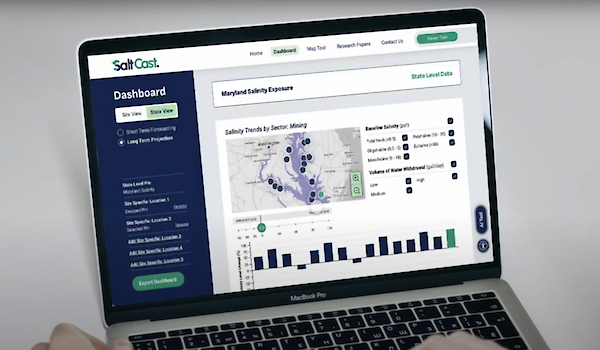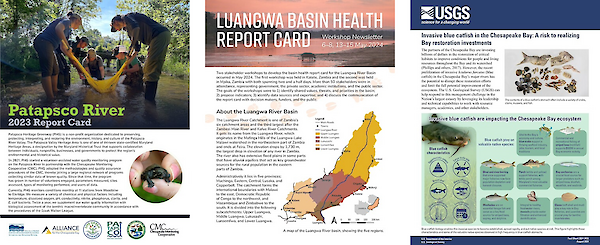Higher Education Climate Action Plan

The Higher Ed Climate Action Plan Launch by the Aspen Institute took place on August 1st at Thurgood Marshall Hall, College Park. Dr. Bill Dennison, Dr. Vanessa Vargas-Nguyen, and Veronica Malabanan Lucchese from the IAN team attended. Dr. Vargas-Nguyen presented on the 2023/2024 Chesapeake Bay and Watershed Report Card's new findings and narratives. Veronica, a 3rd-year PhD student and NOAA-LMRCSC Fellow II, presented on her Baltimore angling community research. Her work with the Environmental Justice Journalism Initiative (EJJI) and the Reel Rewards Invasive Fish Bounty Program, pays anglers $30 for each invasive fish they remove from Baltimore's Middle Branch Harbor. Additionally, anglers are compensated $10 for completing surveys that help EJJI researchers better understand community needs in the face of invasive species take-over and climate change.
SaltCast Workshop: Shaping a Salinity Forecasting Tool for Water Management

On August 5th, we facilitated a stakeholder workshop for SaltCast, an interdisciplinary project being led by Dr. Ming Li and funded by the NSF Convergence Accelerator Program. SaltCast will be a web-based salinity forecasting tool that will help ensure drinking water safety, sustainable freshwater uses, and infrastructure integrity under climate change. Stakeholders learned about progress in the development of this tool and provided feedback on a prototype. This project is taking a human-centered design approach, so feedback from stakeholders is crucial to creating a tool that will support their decision-making about water use and management. This was a wonderful opportunity for the project team to learn from stakeholders and for many of the project team to meet in-person for the first time!
Indus River Report Card Workshop

The kickoff stakeholder workshop for the Indus River Report Card occurred on August 8, 2024. This project is being led by WWF Pakistan, who facilitated the workshop in person while Alexandra Fries presented virtually to the participants. There were about 30 people in attendance who represented different sectors such as public health, wildlife, fisheries, irrigation, agriculture, education, and community empowerment. The participants identified values and threats to the Indus and potential indicators to include in the report card.
Recent IAN publications

Check out some of the following publications we had last month:
- Patapsco River 2023 Report Card: This report card, produced with Patapsco Heritage Greenway as part of the Chesapeake Monitoring Cooperative, assesses the condition of the Patapsco River using volunteer monitoring data for the second year in a row.
- Luangwa River Workshop Newsletter: This newsletter summarizes the results of two stakeholder workshops held in May 2024 for the development of the Luangwa River Basin Report Card with WWF Zambia.
- Invasive blue catfish in the Chesapeake Bay: A risk to realizing Bay restoration investments: In collaboration with the U.S. Geological Survey (USGS), this fact sheet highlights the characteristics of invasive blue catfish, emphasizes the spread of blue catfish in the Chesapeake Bay over time, and informs about the capabilities of USGS to respond to this management challenge.